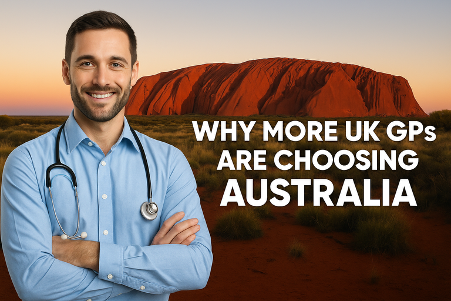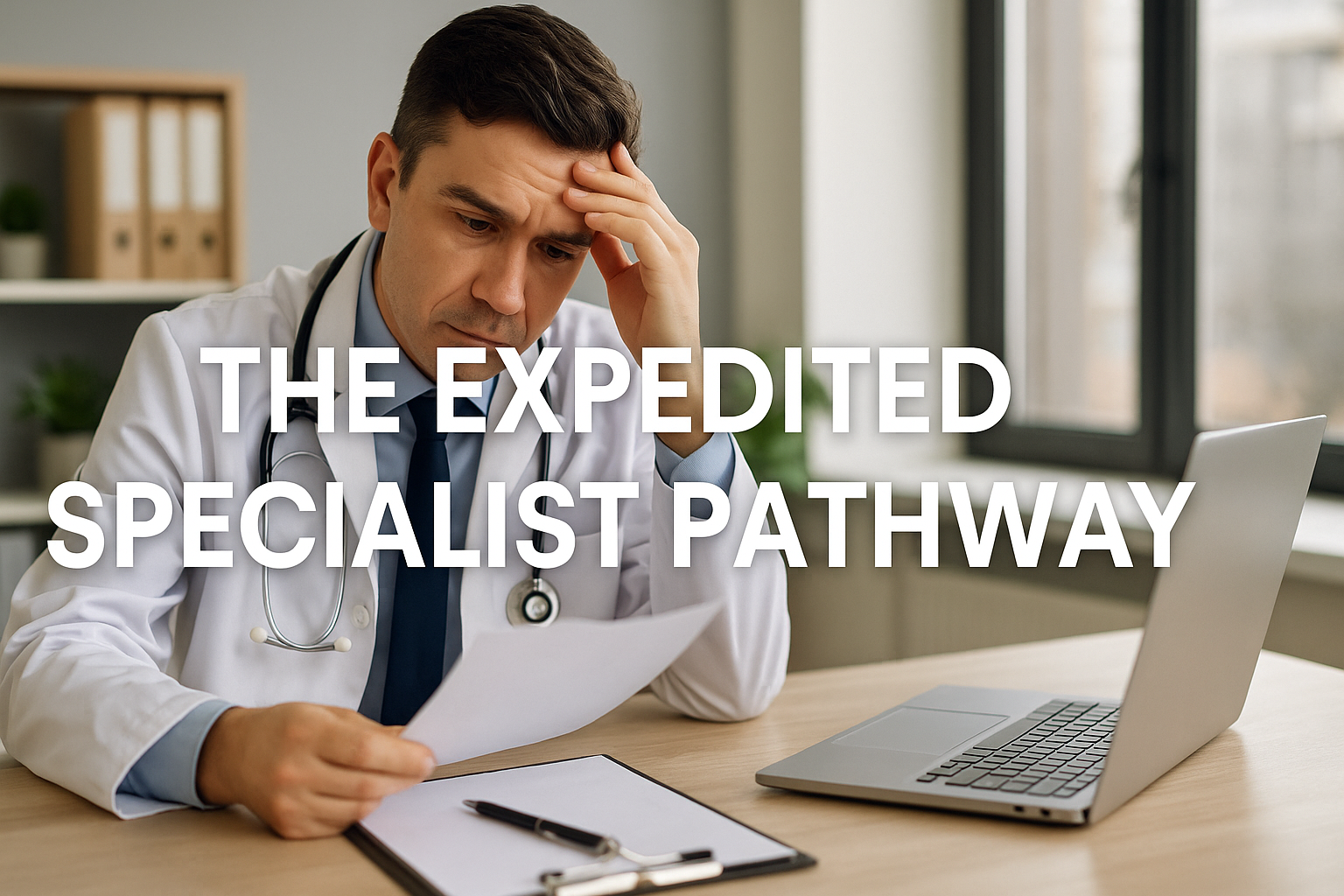Working in Australia: the general practitioner guide

Working in Australia as a GP
Working in Australia as a General Practitioner (GP) is similar clinically to the UK. Most practices now are paperless so all patient records are accessed and recorded by doctors on computer. On average a practice will have 3 to 6 GP’s working full time and part time, with a practice nurse, treatment room, and some allied services such as Psychology, Physiotherapy and Pathology.
There are much larger practices that have up to 20 plus doctors and specialist consulting rooms on-site. They are generally owned by companies “corporates” or a group of doctors who have expanded over time. Solo GP practices still exist however mainly exclusive country and rural areas.
‘A dream job in a dream country’ – Jason Stevens, MRCGP
Billing and Earnings
When you’re working in Australia as a GP, you will find that some processes are working differently from e.g. the UK. The main difference between the UK GP practices and Australian GP practices is the way GP’s get paid. In Australia, practices can be private billing, bulk billing, or mixed billings. Private Billings means the practices charge its patients cash. Bulk billing is where the GP’s charge the patient through Medicare (Australia’s version of the NHS) for the consultation. Mixed billings are when a practice charges either private or private and bulk billings for the consultation. These mixed billing practices tend to “bulk bill” the elderly, concession holders, and children. The rest are privately billed. The money is then split between the practice and the GP as a percentage generally 65% of gross billings going to the GP.
This method has allowed GPs working in Australia to earn well over $250,000 (£150,000) per annum because of the income opportunity it presents. Even though the tax system is about 5% higher than the UK, Australian GP’s have a better tax advantage as they can leverage their income like a business (self-employed) and pay less tax at the end of the financial year. A good accountant who specialises in dealing with GP’s is highly recommended to maximise your income. Have a look at our article on how to build your patient base as well!
Eligibility
To be eligible to start working in Australia as a UK General Practitioner you must have the MRCGP (Membership of the Royal College of General Practitioners) holding the Certificate of Completion of Training (CCT) issued by the Post Graduate Medical Education and Training Board (PMETB) or the General Medical Council (GMC) or trained in Ireland and a graduate of the ICGP and hold MICGP.
Location Restrictions
The majority of overseas trained GP’s working in Australia are subject to District of Work Shortages (DWS) locations in order to be eligible for a provider number through Medicare. These areas are identified using the latest Medicare billing statistics, which are updated on an annual basis to account for changes in the composition and geographic distribution of the Australian medical workforce, and the latest residential population estimates as provided by the Australian Bureau of Statistics (ABS). DWS locations are mostly in outer metropolitan areas from about 30 minutes’ drive outside major cities.
Qualifications and Migration
The Practice Experience Program Specialist Stream provides a pathway for International Medical Graduates to start working in Australia based on an assessment of your previous training and experience in general practice.
The SPP visa pathway allows GPs to be living and working in Australia for up to 4 years via the TSS visa (dependant on the length of the job offer). It can be renewed multiple times, each time for up to four years, and allows dependents to be travelling, living and working in Australia with you for the same duration.
Eligibility for permanent residency in Australia is generally assessed on by taking into account a number of factors which can include:
- Medical registration status
- Type of job offer
- Specific job demand
- Relatives already living in Australia or NZ
- Experience and/or qualifications
Each factor contributes a certain number of points and if you are able to satisfy the required amount then you may be eligible to apply.
Why Australia?
Australia has an excellent health system, great weather, strong economy, well paid jobs, and best of all, no NHS bureaucracy. Of course we are well known for our beaches, sport, wines, and great lifestyle. Most Australians are immigrants or the descendants of immigrants who arrived during the past two hundred years from more than 200 countries. It’s a great time to start working in Australia as a GP!
How Medipeople Can Help you start Working in Australia
Medipeople offers the widest choice of general practice jobs and a specialized, professional migration service dedicated to assisting general practitioners and their families with the relocation process to Australia. If you want to start working in Australia, we will take you through our proven, step-by-step process to make this process as hassle-free as possible for you.
We recruit General Practitioners for a wide variety of medical centres, private practices and other health facilities in Australia. Working with Medipeople you are guaranteed a choice of leading opportunities that match your requirements, advice regarding contracts and negotiation to make sure that you secure the best deal for your situation.
We will help you with all the steps you may need:
- Fine tuning your resume
- Finding, applying for and landing the job you want
- Contract negotiations
- Accommodation
- Money matters
- Battling your way through the immigration jungle
- Getting your qualifications and skills recognized
- Professional registration
- Professional indemnity insurance
- Securing the best financial and relocation package
Register with us now if you are thinking of a change or upgrading your current job.









